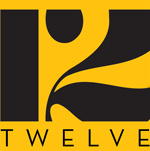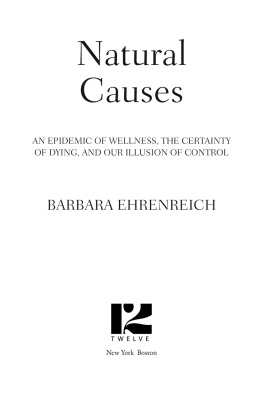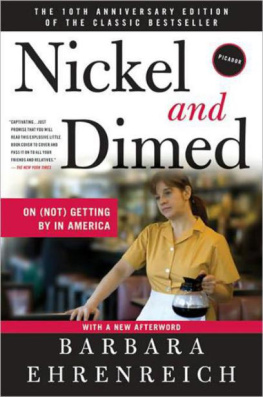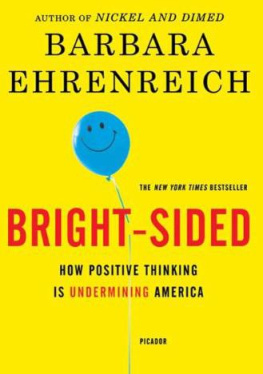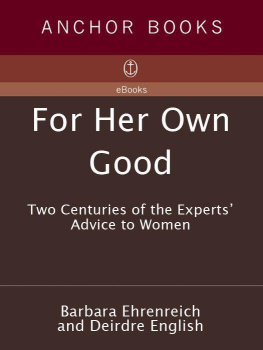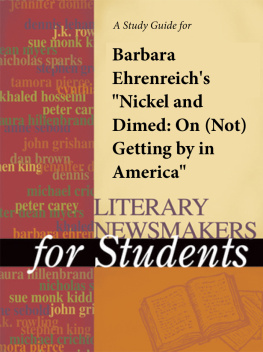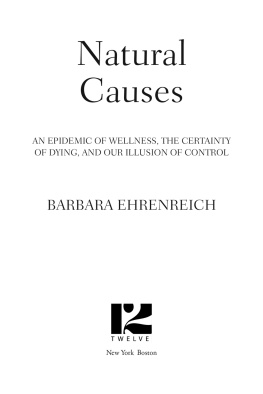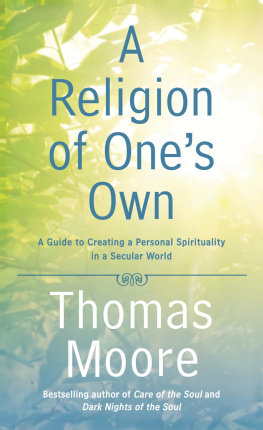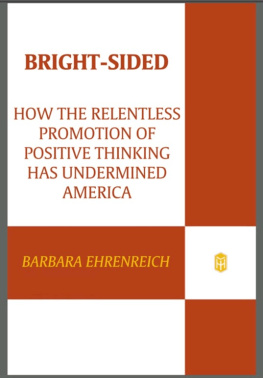In accordance with the U.S. Copyright Act of 1976, the scanning, uploading, and electronic sharing of any part of this book without the permission of the publisher constitute unlawful piracy and theft of the authors intellectual property. If you would like to use material from the book (other than for review purposes), prior written permission must be obtained by contacting the publisher at permissions@hbgusa.com. Thank you for your support of the authors rights.
For Anna and Clara, Rosa and Ben.
In the spring of 2001, I was presented with the unnerving task of assembling my papers for storage in a university library. The timing of this forced review of my life, or at least its paper vestiges, could not have been more viciously appropriate, since I was in the midst of treatment for breast cancer and facing the possibility of a somewhat earlier death than seemed fair for anyone as fit and outdoorsy as myself. A librarian had come down from Cambridge to help, and we spread the stacks of papers out on the largest available surfacethe pool table that had been left behind on the screened-in porch by a departed boyfriend. There were the drafts of unpublished manifestos, notebooks filled with jottings on human history and evolution, polemical exchanges on the relationship between feminism and other social movements, a few diplomas and awards for academic achievements, and a small trove of letters from long-gone lovers.
I felt very little curiosity about these items or even much sense of ownership. If you had asked me whether my life so far had any narrative arc or even consistent themes, I would have had to say no, not that I could make out. It seemed to me I had spent a lot of time careening from one thing to anotherfrom science to journalism, for example, and from journalism to the manic scholarship on display in my more historical works, not to mention the different romantic relationships and the many oscillations between activism and quiet study. I hadand still haveno inclination to try to patch this all together into a single story. I will never write an autobiography, nor am I sure, after all these years, that there is even one coherent self or voice to serve as narrator.
The impetus for packing off the papers was simply the climate in the lower Florida Keys, where I was living at the time, and which is, over the long run, fatally hostile to paper of any kind. When the library approached me I had been disappointed that they werent offering any money, because I hadnt received a very munificent advance for my forthcoming book, Nickel and Dimed, and had in the course of the illness resorted to borrowing money from friends. But if a distinguished library wanted to provide an air-conditioned, dehumidified dwelling place for these fragments and notes, fine. I figured that maybe somedayif civilization, represented by universities and libraries, endured long enougha future graduate student might find something of interest in the boxes we were rapidly filling, say for a dissertation on little-known aspects of the grassroots intellectual ferment within the feminist movement of the seventies.
There was only one thing I held back from the outgoing cardboard boxesa thick reddish folder or envelope of the old-fashioned kind, tied by a string. It had survived for about forty-eight years through god knows how many moves from state to state and one apartment to another. In all that time I had never opened it and never mentioned or referred to it. But somehow I had always remembered to pack it in the bottom of a suitcase, no matter how chaotic the circumstances of the move. Future graduate students could snicker over my love affairs and political idealism if they were so minded, but they could not have this.
The folder contains a kind of journal, though it is really only an intermittent series of entries, each on a separate piece of paper, from the years 1956 to 1966, and mostly from the first three of those years, starting when I was fourteen. What impelled me to hold it back from the tomb that was about to swallow all the other paper remnants of my life was the prospect of mortalitythough not my own mortality as a fifty-nine-year-old woman with a full, productive life behind her. In fact, if youre not prepared to die when youre almost sixty, then I would say youve been falling down on your philosophical responsibilities as a grown-up human being. As for the manner of my death, I would have preferred to start swimming out across the Gulf at dusk, which is shark feeding time, and was still hoping to squeeze that in, should the cancer take a turn for the worse.
No, what scared me on that clear, breezy spring day was the knowledge that the journal is not a self-explanatory, stand-alone document. It begins, promisingly enough, on a wry note:
Today, July fourth, 1956, is a national holiday. That means that people who would normally work elsewhere are now free to work at home. Independence Day is celebrated all over the nation by noisy declarations of disregard for all laws prohibiting firecrackers.
But too often it is tangled and evasive, especially on some of the most important things, which as a girl I had found too private and too searing to commit to paper. I knew the journal would require a major job of exegesis, a strenuous reconstruction of all that I once thought was better left unsaid. So the sad thing was that if Ithe fifty-nine-year-old Barbaradied, she died too: the girl who had written these things so long ago. Thats who, or what, I was determined to save, because if I have any core identity, any central theme that has survived all the apparent changes of subject, the secret of it lies with her.
I knew, roughly speaking, what was in the journal, and that it records what led up to an event so strange, so cataclysmic, that I never in all the intervening years wrote or spoke about it. I did make an attempt once or twice with someone I was especially close to, only to have them change the subject or look away uneasily. What had happened did not occupy any category that intersected with my central adult concerns, such as making a living and taking care of my family while at the same time doing what little I could to try to reduce the amount of cruelty in the world. Besides, despite what I like to think of as continual improvements in my ability to express myself, when it came to this one topic, there were no words.
It hadnt been until I reached my forties that I discovered that what happened to me, or something very similar, has also happened to many other people, and that some of them had even found ways of talking about it, although usually in a vocabulary and framework foreign to me, if not actually repulsive. The conventional term is mystical experience, meaning something that by its very nature lies beyond the reach of language, except for some vague verbal hand-wavings about mystery and transcendence. As far as I was concernedas a rationalist, an atheist, a scientist by trainingthis was the realm of gods and fairies and of no use to the great human project of trying to retain a foothold on the planet for future generations.
So what do you do with something like thisan experience so anomalous, so disconnected from the normal life you share with other people, that you cant even figure out how to talk about it? I was also, I have to admit, afraid of sounding crazy. Try inserting an account of a mystical experience into a conversation and youll likely get the same response as you would if you confided that you had been the victim of an alien abduction. Both involve encounters with beings whose existence is not universally acknowledgedextraterrestrial beings in the one case, spirits, deities, or some Universal Being in the otherand in the academic literature, both are subjected to the same sort of clinical condescension. For example, a recent anthology on anomalous experiences from the American Psychological Association includes very similar chapters on alien abductions and mystical experiences, each offering a highly clinical discussion of prevalence, predisposing factors, biological markers, and so forth, as well as a variety of possible psychiatric explanations. You might as well admit to seeing ghosts or hearing disembodied voices.


